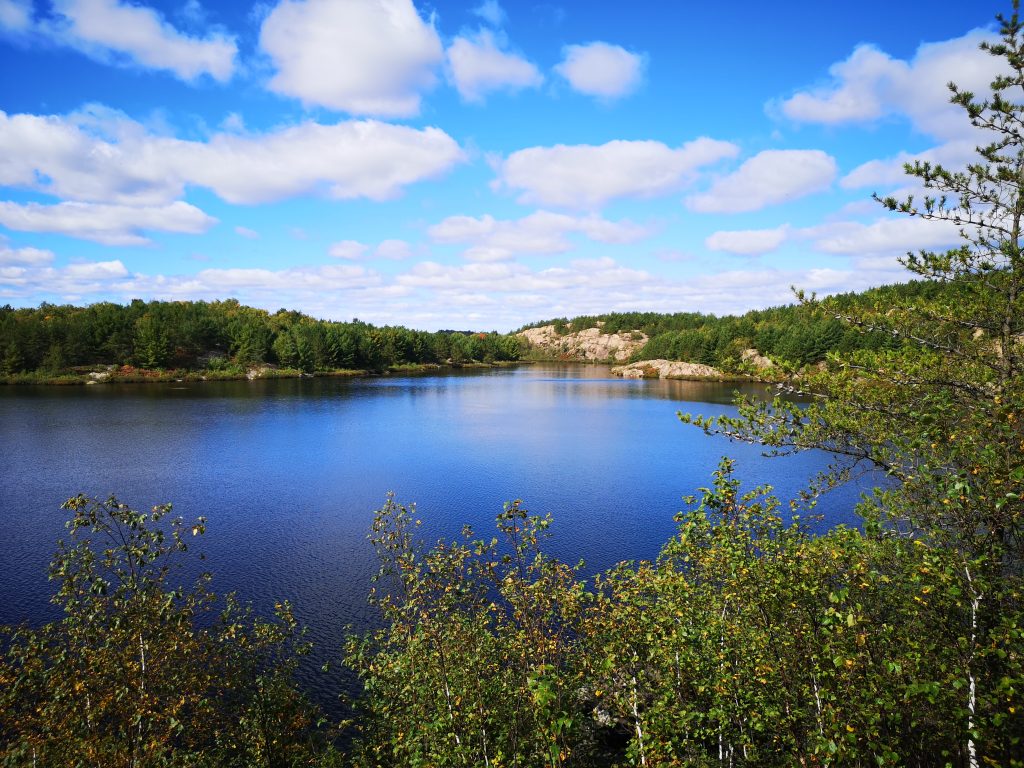Spring/Fall Program
Spring Programs are available May 21 – June 21, 2024.
2024 Elementary Spring Programs2024 Secondary Spring Programs2024 Booking Form

The Lake Laurentian Environmental Program offers a variety of fall themed programs for elementary and secondary students:
JK/SK – Kinder Discover
Discover fall wonders through a hike and scavenger hunt. Find out about local animals, hear Samuel the Turtle’s important message, and play some active, hands-on games.
Grade 1 – Needs of Living Things
Through a hike, hands-on studies, and active games, students learn about the needs and characteristics of plants and animals, and why all living things are important.
Grade 1 – A Season of Change
Go on a hike and play activity games to explore animal adaptations to the changing seasons. Meet Elzine the Monarch Butterfly and hear the story of her travels.
Grade 1+ – A Spring Dose of Vitamin N
Get a healthy does of “Vitamin N” (Nature), by spending the day outdoors – hiking, playing various trail games, and participating in a variety of nature appreciation activities.
Grade 2 – Air and Water Matter
By using an interactive model, playing active games and hiking by the lake, students learn about water and air, and how our actions can affect air and water quality.
Grade 2 – Creatures Grow and Change
Through a hike, active games and pond study, students learn how animals grow and adapt to their habitats, as well as exploring the impact that humans have on animals and their environment.
Grade 2/3 – How to “Bee” a Pollinator
Approximately one-third of all human food is prepared from plants that depend on animal pollinators. Through a story hike and active games discover the work of honey bees and other pollinators as well as the flowers they depend on.
Grade 3 – Meet a Tree
Learn to identify local tree species. A hike, discussion, and active game prepare students to get up close and personal with a tree, exploring its characteristics and parts.
Grade 3 – Don’t Treat Soil Like Dirt!
Students discover the composition of soils from different areas, and play active games that explore soil characteristics.
Grade 3-8 – Survivor, Lake Laurentian
Learn about your basic needs for survival through a series of team activities including learning orienteering skills, making wild teas, and building a survival shelter.
Grade 4 – At Home in the Habitat
Explore ecosystems and the communities that call them home through active games, studies, and a hike visiting forest, lake and wetland habitats. Learn how the delicate balance in ecosystems can be affected by human actions.
Grade 4-8 – Art in Nature
Discover the beautiful colours and patterns all around us in nature. Use natural materials you find on a Colours in Nature Hike and Pattern Scavenger Hunt to create your own natural masterpiece.
Grade 5 – Changing Climate
Learn about your eco-footprint, climate change, and the effects of our use of energy on the environment through active games, a hike, and discussion.
Grade 6 – Diversity of Living Things
Through a hike, hands-on studies, and active games, students compare and classify living things and learn about human impact on biodiversity. *This program has the option of a section focusing on identifying local birds and their songs.
Grade 7 – The Web of Life
Explore the connections within the web. Through a hike, active games and studies, see the interactions within an ecosystem and discover the far-reaching effects of human actions.
Grade 8 – World of Water
By using an interactive model, playing active games, and exploring methods of monitoring water quality, students learn about water systems and how our actions can affect our water resources.
Wild about Team Building (Grade 3-8)
We can learn from the many ways that living creatures work together in the natural work. Wrap up your school year with some “wild” team building activities in the outdoors to help your students work even better together and learn team skills.
Grade 9 Science: Sustainable Ecosystems
Through a hike, active games and hands-on study, students will explore the concepts of sustainable ecosystems, watersheds, biodiversity, carrying capacity, and human impacts such as habitat fragmentation and bioaccumulation.
Grade 9 Geography: Sustainability of Human Systems
Students will learn about the “Sudbury Story” and explore ways in which human activity can affect the natural environment – from small scale individual footprints to the larger scale footprint of a community.
Grade 11 Biology: Diversity and Classification of Living Things
Students will have the opportunity to use keys and classification systems to explore the diversity of our forest and pond species, as well as becoming familiar with characteristics of mammal skulls. Students will end the day with an Amazing Classification Race where they will work in teams to apply their skills.


